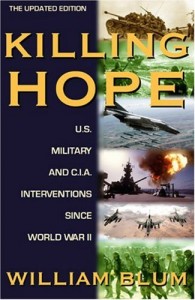1945: During post-war efforts to bring scientists who worked for the Third Reich into the United States, the US War Department obeys President Truman’s order to exclude scientists who supported Nazism, rather than rewriting candidates’ files to conceal the evidence. The United States and the Soviet Union divide the German scientists with more equality. In particular, the Soviet Union acquires Arthur Rudolf, former operations director of the Mittelwerk factory at the Mittelbau-Dora concentration camps.
January, 1946: Rather than anticipating a post-war crisis of overproduction in the USA, Soviet economists predict that the United States will try to avoid the crisis by maintaining its wartime military industry and trying to open the new Europe and Asia to free trade. Based on their advice, Stalin now views the United States as the chief threat to the Soviet Union, instead of the reemergence of Germany or Japan. Continue reading



